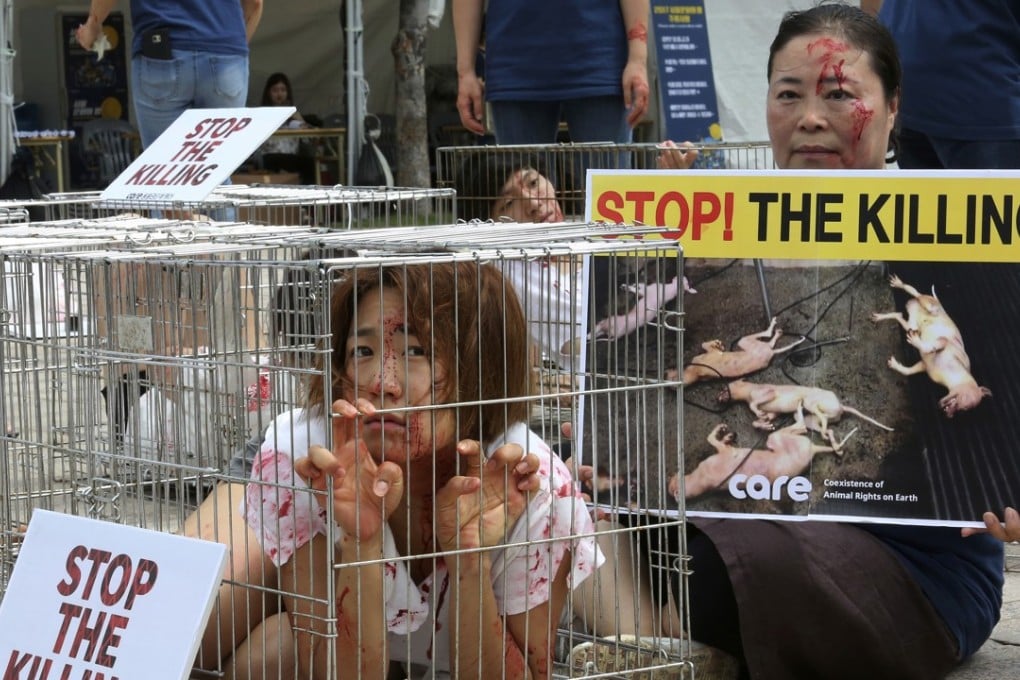Asia in 3 minutes: Farewell to (legal) dog meat in Korea and Australia’s incredible breeding orangutan. Hello rich rats in India
Trump and Kim’s Singapore summit was a hit with 40,000 cyberattackers – mostly from Russia; Philippine court hears the case for gay marriage

South Korea loses taste for dog meat as court paves way for ban
A South Korean court this week ruled the killing of dogs for meat is illegal in a decision that rights activists hope will pave the way for legislation. Animal rights group Care last year filed complaints against a dog farm operator in Bucheon, accusing him of “killing animals without proper reasons”, and prosecutors later charged him. In convicting the farm operator, the court ruled meat consumption was not a legal reason to kill dogs. The precedent “paved the way for outlawing dog meat consumption entirely”, said lawyer Kim Kyung-eun. Dog meat has long been a part of South Korean cuisine. But while recent surveys show 70 per cent of South Koreans do not eat dogs, only about 40 per cent believe the practice should be banned.
What next: A Democratic Party lawmaker introduced a bill that would effectively ban killing dogs for meat – limiting the slaughter of animals for food to species classed as livestock. Dog is usually eaten in the country as a summertime delicacy, with the greasy red meat – invariably boiled for tenderness – believed to increase energy.

40,000 cyberattacks hit Singapore during Trump-Kim summit
Singapore came under attack earlier this month during the summit between US President Donald Trump and North Korean leader Kim Jong-un. According to American technology firm F5 Networks and its data partner Loryka, the city state endured a barrage of close to 40,000 cyberattacks during the June 12 meeting.
F5 data analysis found that attacks “skyrocketed”over the two-day period, with almost 90 per cent of all attempts being launched from Russia. The remaining 10 per cent stemmed from Brazil and Germany. The company could not verify if the attacks were state sponsored. Many of the attacks were scans looking for vulnerable devices, with only a few being attempts to upload malicious software.
What next: The Cyber Security Agency of Singapore said there were no successful attacks during the highly guarded summit, and refuted the company’s findings, saying the numbers were “a result of increased scanning activities on network ports and are not reflective of the occurrence of cyberattacks linked to the summit”.

World’s oldest orangutan dies aged 62 after helping species live on
